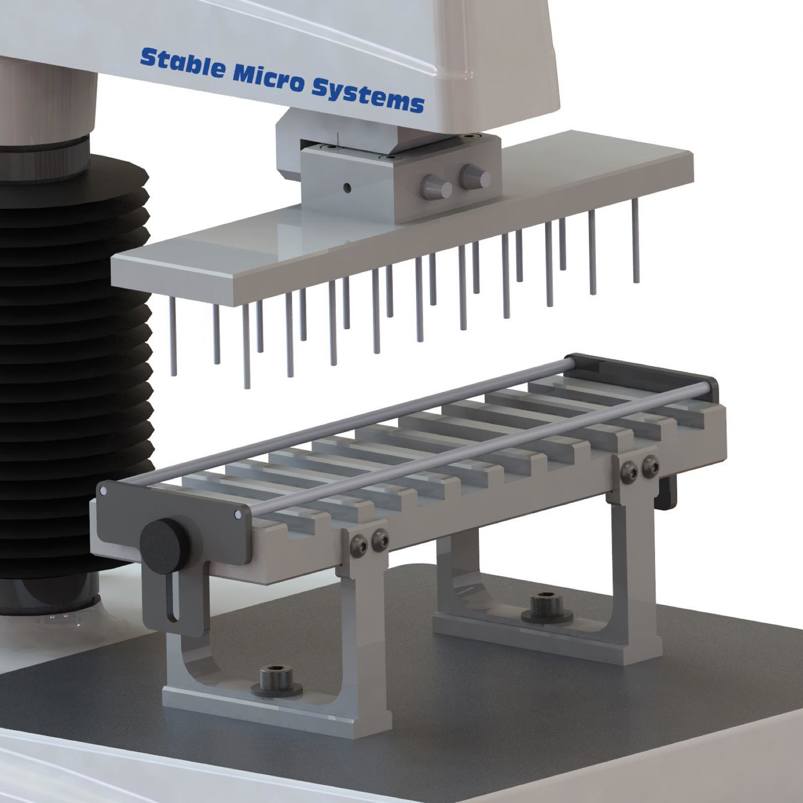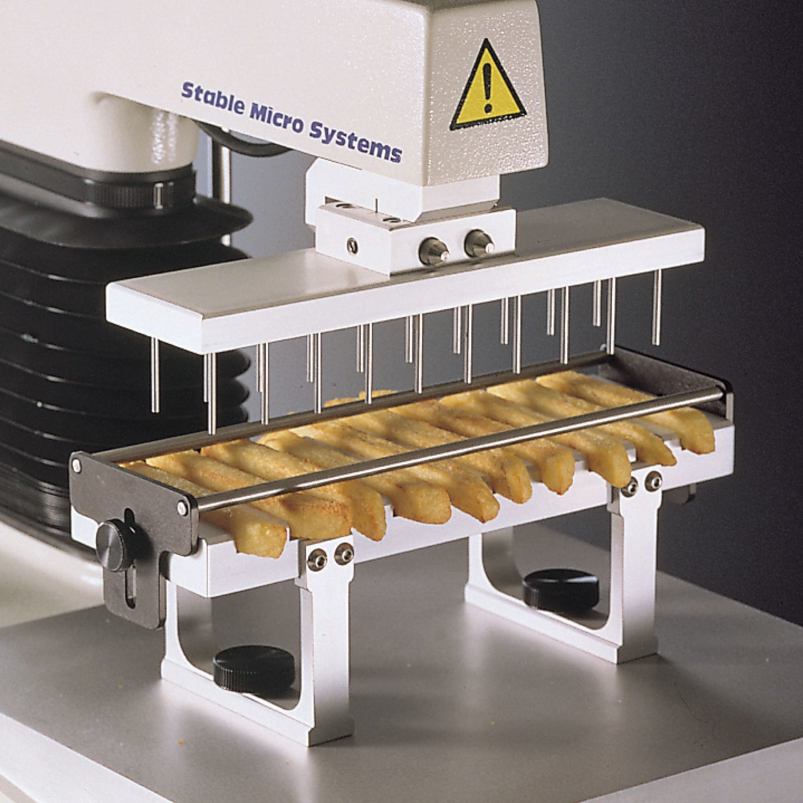Product overview
A penetration test could well be considered the most simple of all tests; as the size of the probe surface area is constant, this often means that the sample size does not need to be carefully controlled unlike compression testing. However, when faced with a non-homogeneous product, penetration is highly compromised as a smaller surface area for measurement is also more sensitive to variations in sample structure and low reproduceability and misleading data is obtained. Results may show a wide variance between maximum and minimum forces depending on whether the probe meets with, for example, an air pocket, hard particle or internal structure variation.
The Multiple Chip Rig measures the force obtained by the penetration of a multiple sample of chips (known in some countries as French fries). Up to 10 chips can be tested at any one time and the rig ensures that each chip is completely penetrated by a 2mm diameter probe. The probe head has a fast release adapter to enable the probe to be rapidly cleaned and relocated in the same position and has three index positions to allow testing at three locations along the sample lengths. Two adjustable stainless steel rods are used to hold the samples in position on the sample holder.
Ideal sample form
Material that can be presented for testing in the form of thick strips of approximately the same height.
Benefits and limitations
- Indexing allows the testing of chips in three different sample regions
- Accommodates samples up to 12mm width
Technical information
Installation
Full installation instructions are provided within the Education Zone of the latest Exponent/Connect software version and on the technical information sheet accompanying this product.
Chemical compatibility
Stable Micro Systems probes and attachments are commonly made from four materials: anodised aluminium (AA6082 T6), stainless steel (316 T), Delrin (acetyl copolymer) and Perspex (polycarbonate).
In general use, probes and attachments made from these materials will be suitable for testing food products and inert non-food materials.
The four materials listed above are not universally resistant to all types of chemicals and as such the compatibility of the probe/attachment material with the product (to be tested) must be established to prevent damage to the probes and attachments. If the compatibility of the product with the probe is unknown to the customer then the chemical information about the product (Material Safety Data Sheet or Product Data Sheet) should be submitted to Stable Micro Systems. Stable Micro Systems will then assess the suitability of the probe/attachment material for use with the product and advise accordingly. If this advice is not sought then Stable Micro Systems will not accept liability for probes/attachments damaged by chemical attack from the product being tested.
Cleaning and maintenance
All probes and attachments may be cleaned in warm (or hand hot) water using a mild detergent. A soft brush may be used but abrasive cleaning aids should be avoided. Stable Micro Systems products should not be microwaved or cleaned in a dishwasher.
Screw threads should be lightly lubricated after drying using a light lubricant, e.g. petroleum jelly, mineral oil. This will aid the fitting and unscrewing of the item. Each component of a probe or attachment should be wrapped separately when stored, to avoid scratching or chipping. This will safeguard against any unnecessary damage to the accessory.



